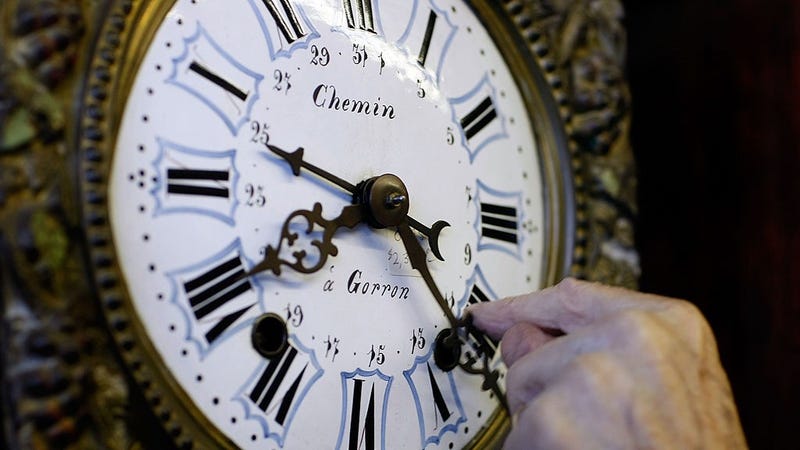
The U.S. Senate unanimously approved a bill on Tuesday that would make Daylight Saving Time permanent throughout the entire United States.
The Sunshine Protection Act will need to pass the House and be signed by President Joe Biden to become a law and go into effect next year.
This would mean that Americans can stop having to change their clocks twice a year and enjoy more hours of daylight outside.
The bill has backing from from both Republicans and Democrats, who expressed their feelings of support in putting an end to the system that has been in place since the Uniform Time Act of 1966.
"You'll see it's an eclectic collection of members of the United States Senate in favor of what we've just done here in the Senate, and that's to pass a bill to make Daylight Savings Time permanent," Sen. Marco Rubio (R-Fla.) said, per CNN. "Just this past weekend, we all went through that biannual ritual of changing the clock back and forth and the disruption that comes with it. And one has to ask themselves after a while why do we keep doing it?"
"If we can get this passed, we don't have to keep doing this stupidity anymore," Rubio said.

Sen. Patty Murray (D-Wash.) said that ending Daylight Saving Time would make every citizen much happier.
"I’ve said it before and I'll say it again: Americans want more sunshine and less depression — people in this country, all the way from Seattle to Miami, want the Sunshine Protection Act," Sen. Murray said. per the Associated Press.
Now, it won't be getting dark until the evening towards the end of December, after most people are home from school and work.
Sen. Sheldon Whitehouse (D-R.I.) is the lead Democratic sponsor of the bill and said that the change would improve the lives of all Americans.
"It does darken our lives in a very literal sense and by the time you get from November when we fall back to the shortest day of the year in December, the 21st I think it is, we have sunset in Rhode Island at 4:15," Sen. Whitehouse said, per The Hill. "That means everybody is driving home if they work regular nine-to-five hours they’re driving home in the pitch dark."
There are a few states and some overseas territories that currently don't observe Daylight Saving Time, like Arizona, Hawaii, American Samoa, Guam, Puerto Rico, the Northern Mariana Islands, and the U.S. Virgin Islands.
Sen. Rubio added that because of already established transportation schedules that the bill wouldn't go into effect until November 2023 to give them time to adjust.


